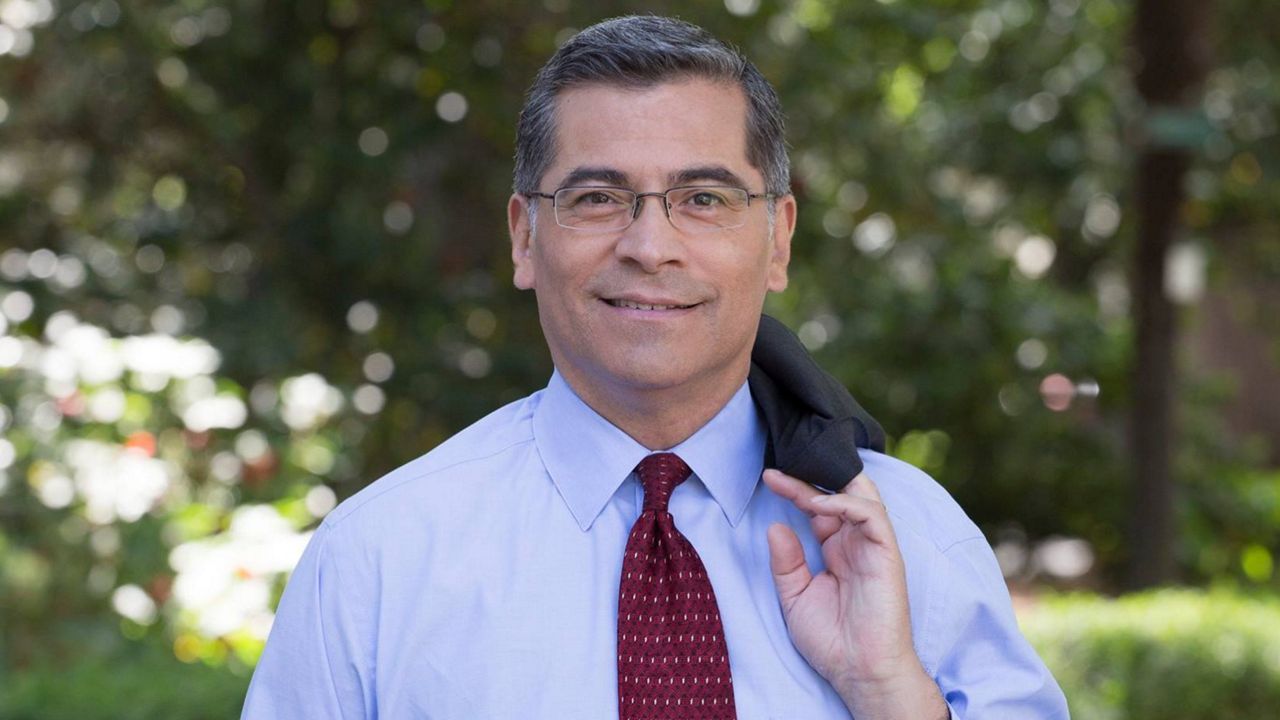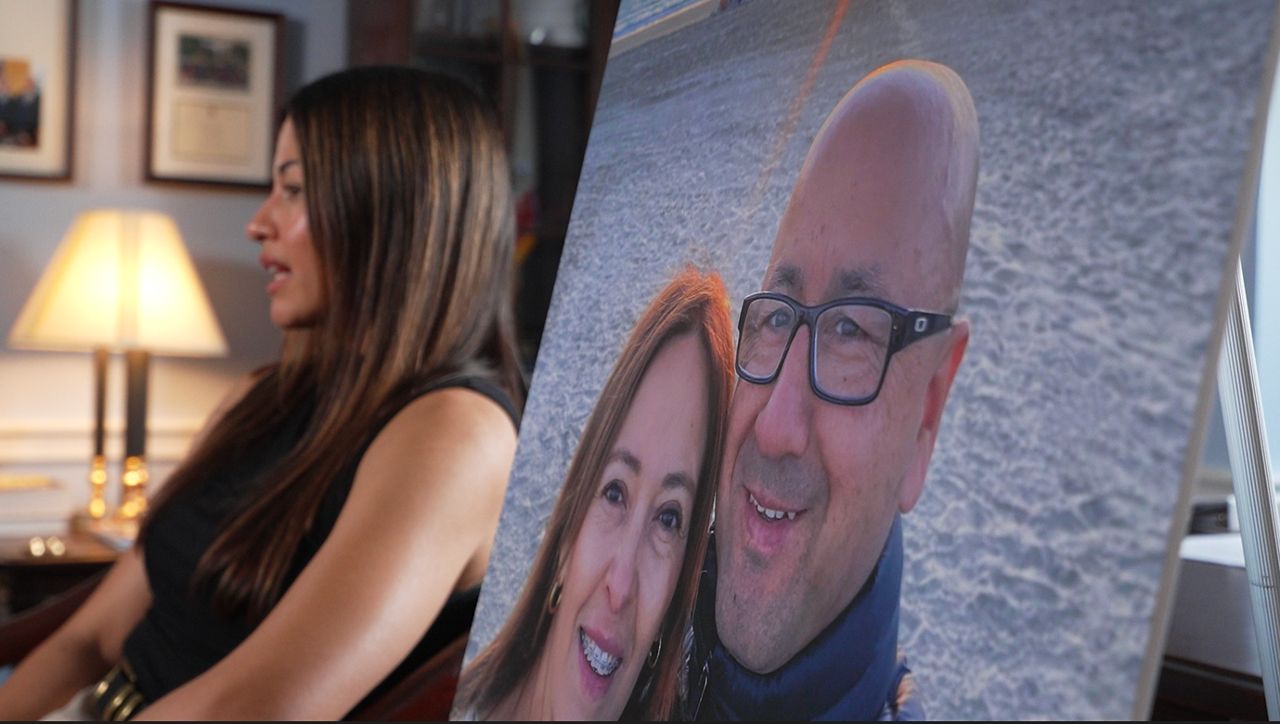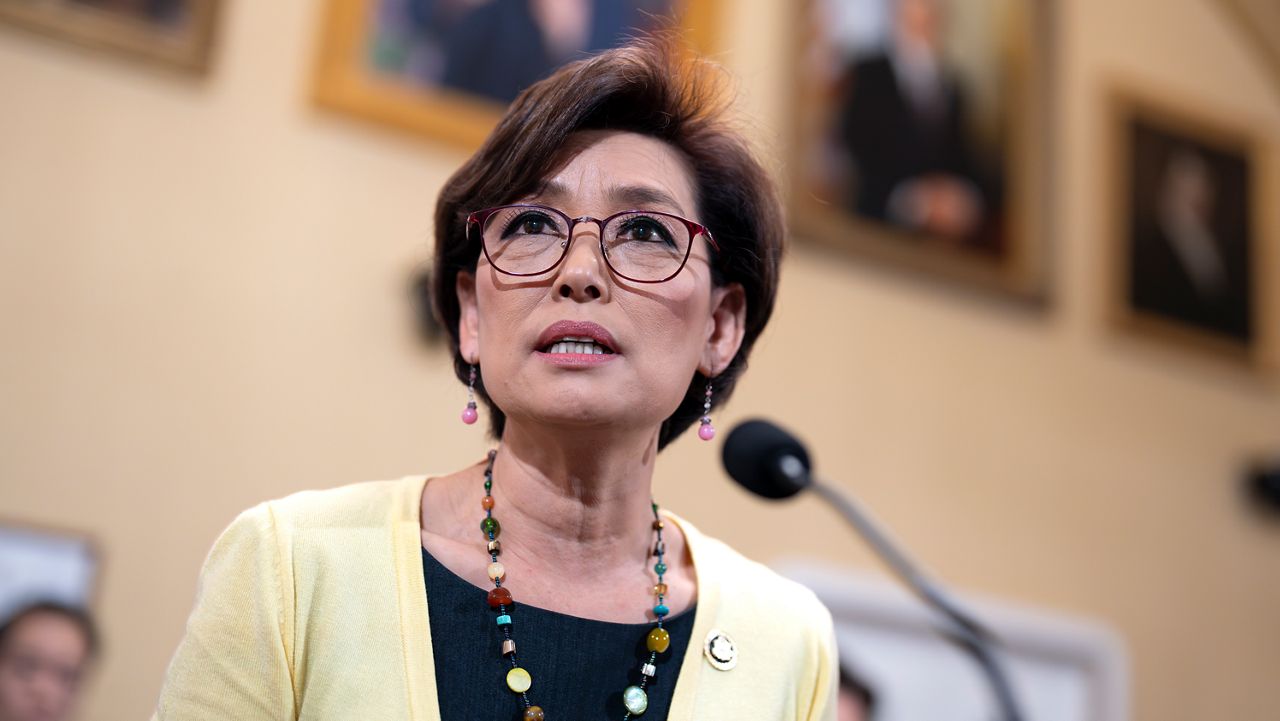In its third public hearing, the House Select Committee investigating the Jan. 6 riot at the U.S. Capitol focused on efforts to pressure then-Vice President Mike Pence to overturn the 2020 election.
The panel made its case Thursday that then-President Donald Trump knew that the effort to get Pence to reject the results of the election was unlawful, but he went through with it anyway – and when Pence refused, the president whipped up his supporters into a frenzy, putting the vice president in danger.
“Mike Pence said no,” Chairman Bennie Thompson, D-Miss., said. “He resisted the pressure. He knew it was illegal. He knew it was wrong. We were fortunate for Mr. Pence’s courage. On Jan. 6, our democracy came dangerously close to catastrophe.
“That courage put him in tremendous danger. When Mike Pence made it clear that he wouldn't give in to Donald Trump's scheme, Donald Trump turned the mob on him — a mob that was chanting ‘hang Mike Pence,’ a mob that had built a hangman's gallows just outside the Capitol.”
“Vice President Pence understood that his oath of office was more important than his loyalty to Donald Trump. He did his duty,” vice chair Liz Cheney, R-Wyo., said. “President Trump unequivocally did not.”
Here are 9 takeaways from the Jan. 6 panel's third hearing:
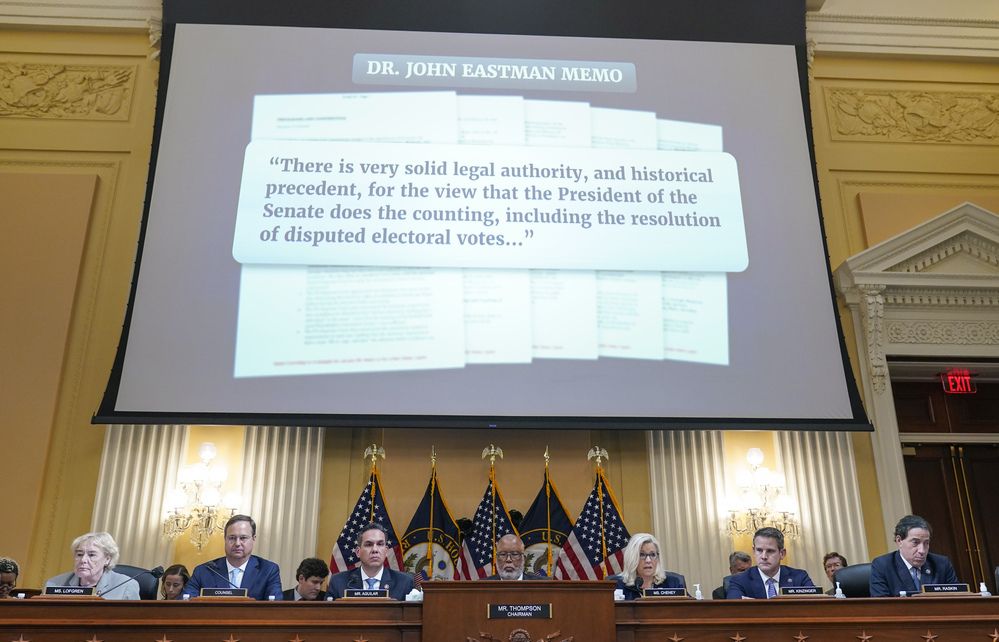
A memo from conservative attorney John Eastman, which maintained that then-Vice President Pence had the authority to overturn the 2020 election results during a joint session of Congress, took center stage at Thursday's hearing.
When questioned by the panel about Eastman’s theory that the Vice President had the power to reject the tally of state electors, J. Michael Luttig, a retired federal judge said that "there was no basis in the Constitution or laws of the United States at all, for the theory espoused by Mr. Eastman."
Luttig rebuked his former clerk Eastman, saying that his plan was "incorrect at every turn."
Pence’s former counsel said the ex-vice president asked him in December 2020 about whether he had the power to unilaterally reject the results of a presidential election.
Greg Jacob testified Thursday that Pence told him “he had been seeing and reading things that suggested that he had a significant role to play on Jan. 6 in announcing the outcome of the election.”
Pence’s instinct, Jacob said, was there was no truth to that theory. Pence believed “there was no way that our framers … who had broken away from the tyranny of George III, would ever have put one person, particularly not a person who had a direct interest in the outcome — because they were on the ticket for the election — in a role to have a decisive impact on the outcome of the election.”
Jacob told Pence he’d draft a memo overnight further explaining to him his role in the Electoral College vote certification.
“Our review of text, history and, frankly, just common sense all confirmed the vice president's first instinct on that point,” Jacob told the committee. “There is no justifiable basis to conclude that the vice president has that kind of authority.”
In one dramatic exchange Thursday, Luttig said that he "would have laid my body across the road before I would have let the vice president overturn the 2020 election."
"If I had been advising the vice president of the United States on Jan. 6 — and even if then-Vice President Jefferson and even then-Vice President John Adams and even then-Vice President Richard Nixon had done exactly what the president of the United States wanted his vice president to do, I would have laid my body across the road before I would have let the vice president overturn the 2020 election on the basis of that historical precedent.
"But what this body needs to know, and now America needs to know, is that that was the centerpiece of the plan to overturn the 2020 election," he added.
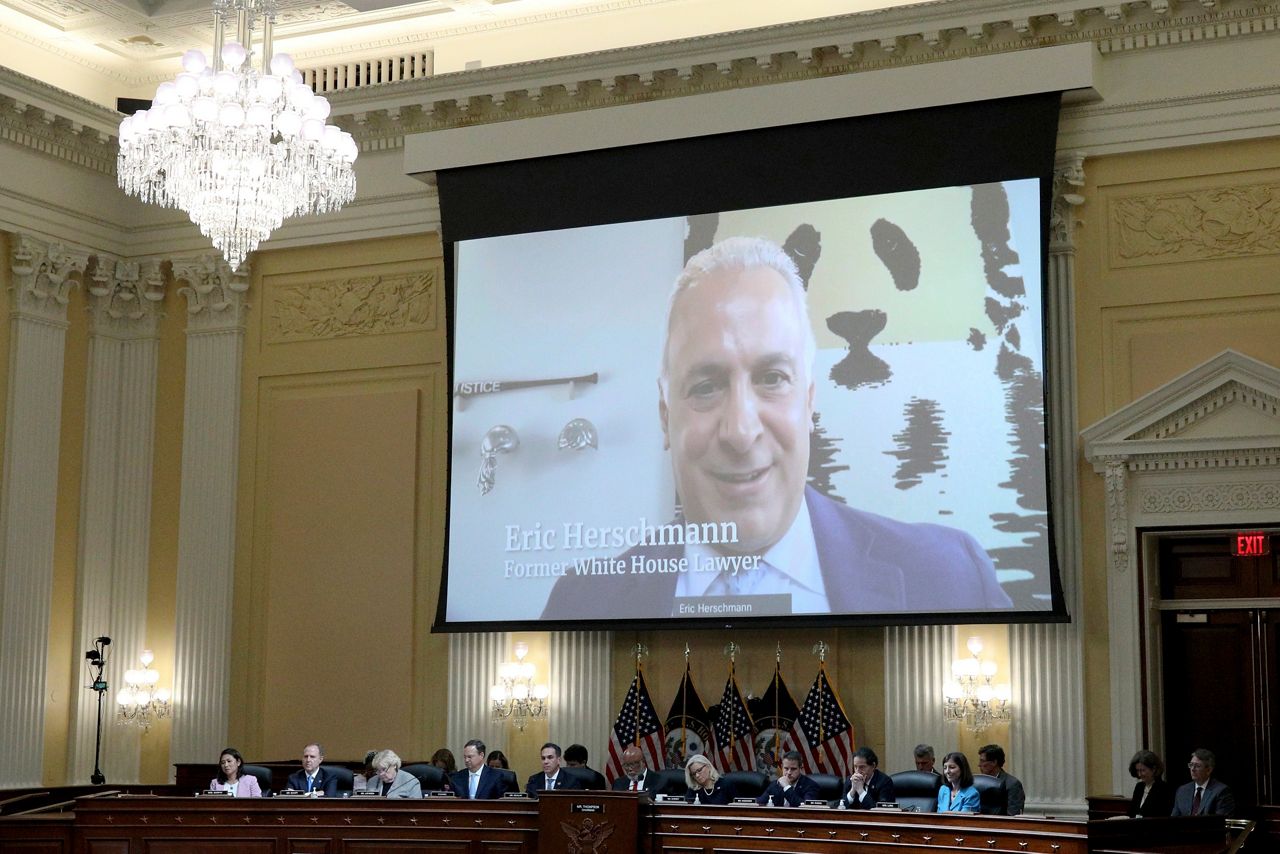
Former aides to Donald Trump and Mike Pence made it clear they did not agree with attorney John Eastman’s assertion that former Vice President Mike Pence had the power to unilaterally declare Trump had won the 2020 presidential election.
The panel played a video montage of earlier testimony from Trump and Pence advisers who either said they believed there was no basis to Eastman’s theory or said others in the administration vehemently disagreed with the lawyer.
Former White House lawyer Eric Herschmann said “it made no sense to me that, in all the protections that were built into the Constitution for a president to get elected and steps that had to be taken, that the power to choose the next president would be sitting with the vice president.”
Herschmann said Eastman tried to explain to him what he believed was ambiguity in the laws.
Herschmann said he told Eastman: “You're saying that you believe the vice president, acting as president of the Senate, can be the sole decision maker as to, under your theory, who becomes the next president United States?”
“And he said yes,” Herschmann continued. “I said, ‘Are you out of your effing mind?’
“I said, ‘You're completely crazy.’ I said, ‘You're going to turn around and tell 78-plus million people in this country that your theory is this is how you're going to invalidate their votes because you think the election was stolen.’ I said, ‘They're not going to tolerate that. You're going to cause riots in the streets.’
“And he said words to the effect of, there's been violence in the history of our country to protect the democracy or to protect the republic,” Herschmann added.
Marc Short, who served as Pence’s chief of staff, said it was communicated to him that White House counsel Pat Cipollone believed Eastman’s interpretation was “nutty.”
Jason Miller, a senior adviser to Trump’s reelection campaign, said fellow campaign officials Justin Clark and Matt Morgan thought Eastman’s “theory was crazy, that there was no validity to in any way, shape or form.”
Eastman said Clark and Morgan tried to relay their opinion to “anyone who would listen” before Jan. 6.
Short said, in a conversation he had with Mark Meadows, the White House chief of staff seemed to agree with him that Pence did not have the authority to overturn the election, but Short added it was difficult to read too much into Meadows’ response because he “had told so many people so many different things.”
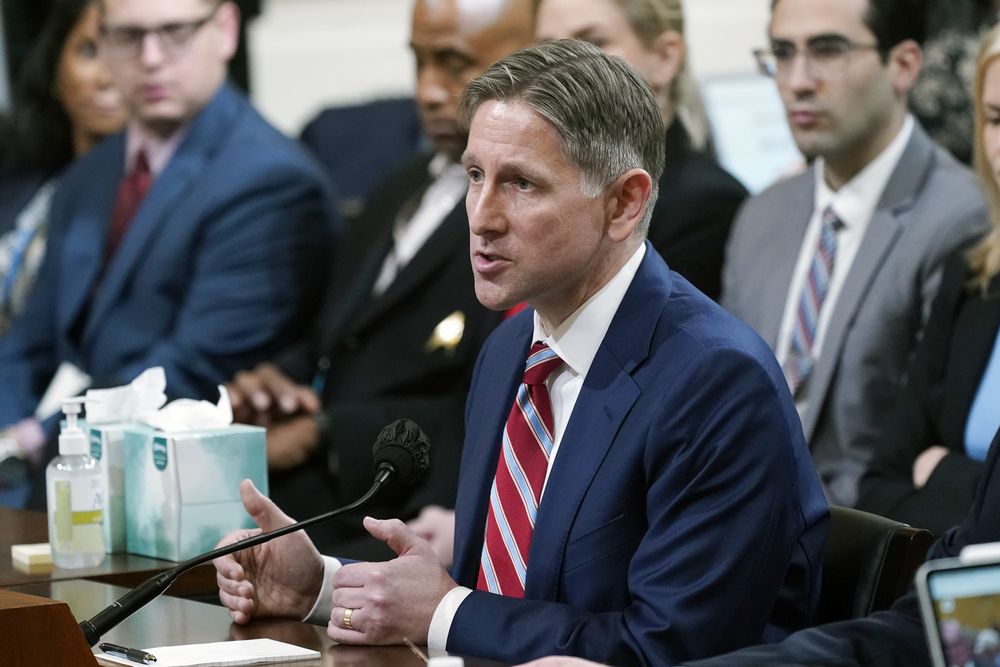
In Thursday's hearing, Greg Jacob, former chief counsel Vice President Mike Pence, revealed that the vice president's legal team reviewed every presidential election in U.S. history to examine the VP's role in the electoral count.
"We examined the Electoral Count Act, we examined practice under the Electoral Count Act, and critically, no vice president in 230 years of history had ever claimed to have that kind of authority," Jacob said. "In the entire history of the United States, not once had a joint session ever returned electoral votes back to the states to be counted."
Jacob later went on to recall what conservative attorney John Eastman told him about Pence trying to overturn the election results: "Al Gore did not have a basis to do it in 2000. Kamala Harris shouldn't be able to do it in 2024. But I think you should do it today."
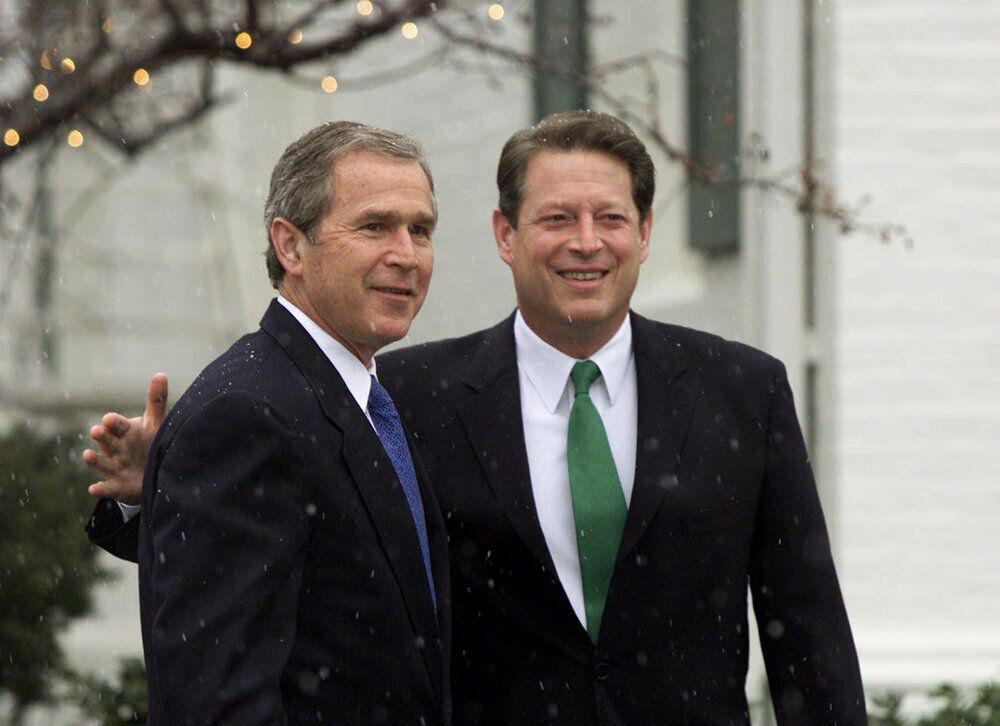
Throughout Thursday's hearing, lawmakers and witnesses hearkened back to the closely contested 2000 election between then-Vice President Al Gore and Texas Gov. George W. Bush, which came down to one state, a recount and a month-long series of legal battles which wound up before the Supreme Court.
Bush ended up winning the election, and Gore, who was Vice President at the time, ultimately oversaw the counting of the electoral votes in 2001 and certified his own loss in the 2000 election.
Jacob recalled that Pence told him that watching Gore "gavel down a number of objections that had been raised" was one of his earliest memories as a congressman (Pence was elected to the House in 2000 and began serving in 2001) before asking him the mechanics of how the electoral count works.
Jacob later went on to reference the election again later when discussing Eastman's theory about Pence's power to overturn the election results on Jan. 6: "If you were right, don't you think Al Gore might have liked to have known in 2000 that he had authority to just declare himself president of the United States?"
The panel also played a clip of Gore describing his role: "The importance of the United States of America in all of human history, in Lincoln's phrase, we still are the last, best hope of humankind and the choice between one's own disappointment in your personal career and upholding the the noble traditions of America's democracy -- it's a pretty easy choice when it comes down to it."
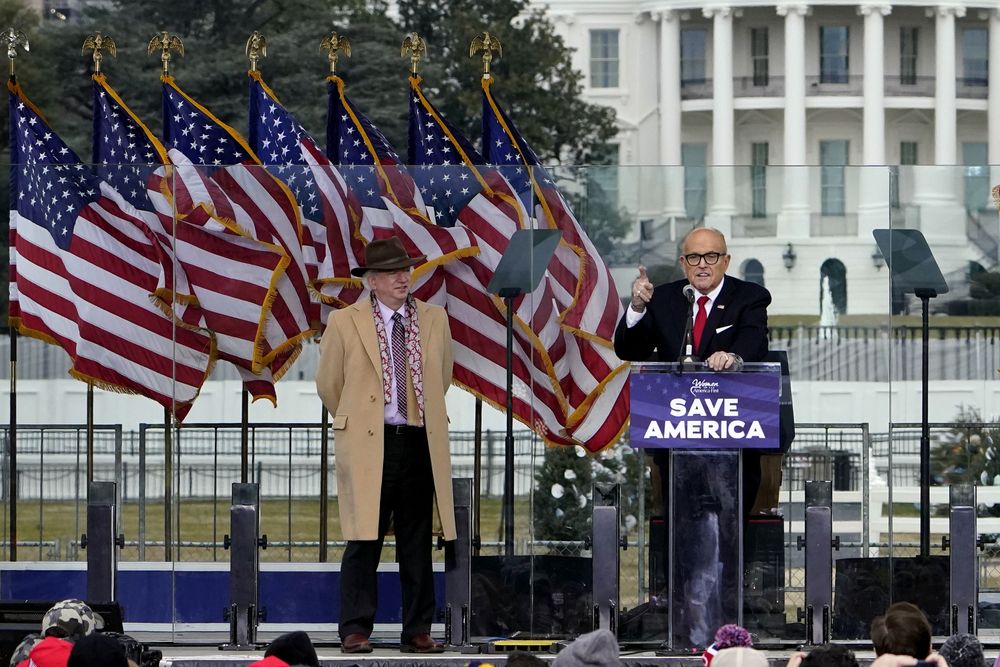
Even after violence broke out in the Capitol on Jan. 6, Eastman would not let go of the possibility of Trump remaining in the White House.
In a phone call with White House attorney Eric Herschmann on Jan. 7, Eastman asked "about something dealing with Georgia preserving something potentially for appeal,” Herschmann told lawmakers in recorded testimony.
“And I said to him, are you out of your effing mind? Right? Because I only want to hear two words coming out of your mouth for now on: orderly transition,” Herschmann recalled, adding to Eastman: “‘I'm gonna give you the best free legal advice you're ever getting in your life: get a great effing criminal defense lawyer. You're going to need it.’ I hung up on him.”
Just a few days later, Eastman emailed Rudy Giuliani, who was then working for the Trump campaign, asking that “he be included on a list of potential recipients of a presidential pardon,” committee member Rep. Peter Aguilar, D-Calif., said Thursday.
“Dr. Eastman's email stated, quote: ‘I've decided that I should be on the pardon list if that is still in the works,” Aguilar said. “Dr. Eastman did not receive his presidential pardon.”
When he was subsequently interviewed by the Jan. 6 committee, Eastman invoked his Fifth Amendment right against self-incrimination roughly 100 times, lawmakers said Thursday.
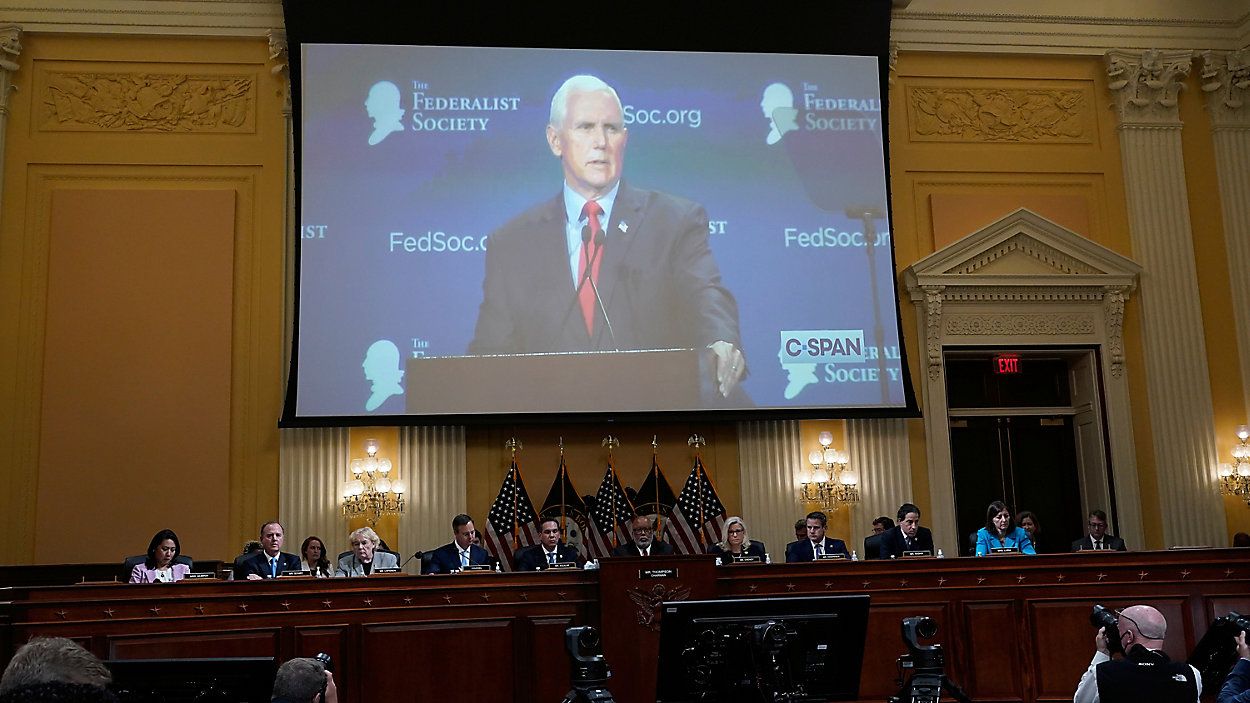
Greg Jacob, former counsel to vice president Mike Pence, told the panel about how Trump and attorney Eastman attempted to pressure the vice president to overturn or otherwise delay certification of the election in the days immediately before the riot.
Jacob said Eastman, who spread the memo maintaining Pence did have the power to help sway the outcome of the election, proposed what the conservative attorney viewed as two “equally viable arguments” as to what the vice president could do to help Trump stay in office.
“One of them was that he could reject electoral votes outright,” Jacob said. “The other was that he could use his capacity as presiding officer to suspend the proceedings and declare essentially a 10-day recess during which [...] the vice president could issue a demand to the state legislatures in those states to reexamine the election and declare who had won each of those states.”
During the meeting on Jan. 4, Eastman “did not recommend what he called the more aggressive option” of rejecting the electoral count outright, Jacob said; by the next day, Eastman requested the vice president do just that.
“The vice president never budged from the position that I have described as his first instinct, which was that it just made no sense – from everything that he knew and had studied about our Constitution – that one person would have that kind of authority,” Jacob said of rejecting the electoral votes.
It was a message Jacob reiterated numerous times throughout Thursday’s hearing, telling chairman Thompson: “The vice president's first instinct when he heard this theory was that there was no way that our framers [...] who had broken away from the tyranny of George the Third would ever have put one person, particularly not a person who has a direct interest in the outcome because they were on the ticket for the election, in a role to have a decisive impact on the outcome of the election.”
On the eve of the Jan. 6 attack on the Capitol, Eastman met with Pence, where he requested that the vice president “reject the electors," according to Jacob.
“What most surprised me about that [Jan. 5] meeting was that when Mr. Eastman came in and he said, 'I’m here to request that you reject the electors,'" Jacob said to the committee on Thursday afternoon.
Jacob added that during this meeting he had written some notes by hand in his notebook, which he turned over to the panel. One of the notes displayed on the screen above the panel of lawmakers read “requesting VP reject.”
During the meeting on Jan. 5th, Jacob recalled speaking with Eastman. “Can’t we both agree this is a terrible idea?” he said to Eastman, who conceded and realized that he was not going to persuade Jacob.
In a tweet posted by then-President Trump on Jan. 5, Trump incorrectly said that he and Pence had agreed Pence could overturn the election and had the same theory to “reject fraudulently chosen electors.”
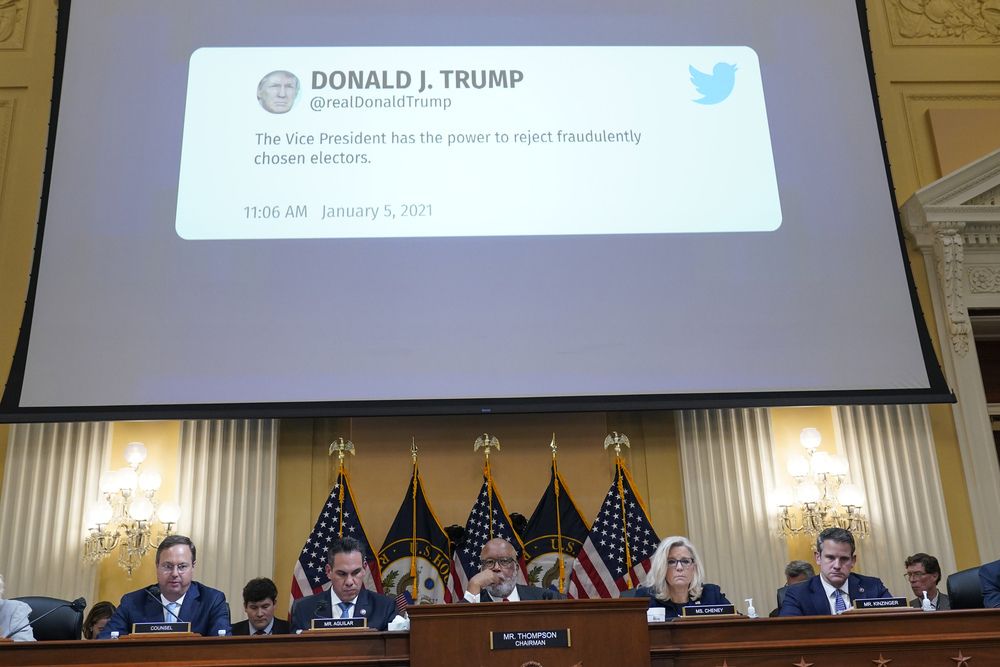
After Pence told Trump on Jan. 5, 2021, that he did not have the power to block congressional certification of the presidential election, Trump issued a statement falsely claiming he and Pence were in agreement, Pence’s former counsel, Greg Jacob, testified.
Trump’s statement was in response to a New York Times article about the dispute with his vice president.
The statement read: "The New York Times report regarding comments Vice President Pence supposedly made to me today is fake news. He never said that. The Vice President and I are in total agreement that the Vice President has the power to act."
Jacob testified to the House Jan. 6 committee that Pence’s staff was “shocked and disappointed” by the statement “because whoever had written and put that statement out, it was categorically untrue.”
Trump campaign senior adviser Jason Miller admitted to the committee he received a phone call from Pence chief of staff Marc Short that “strongly inferred” they were not pleased with the statement and asked about the procedure for releasing a statement when only two people were in the room.
Miller said Trump dictated most of the message, with Miller tweaking some of the wording.
“Ultimately, the way this came out was the way that he (Trump) wanted to,’ Miller said.
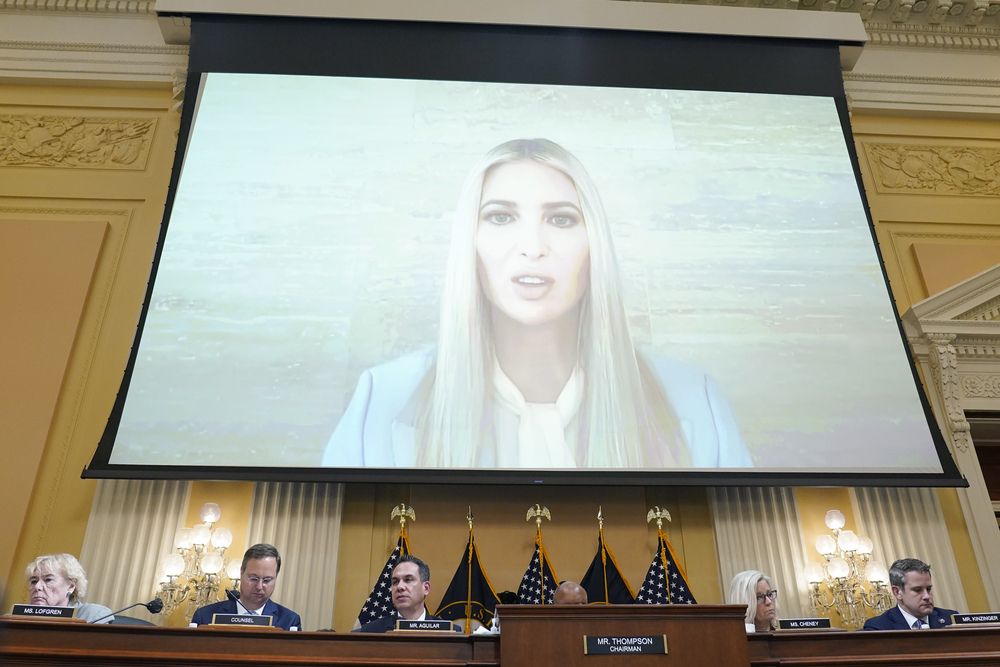
The House panel played recorded testimony from numerous people close to former President Donald Trump on Thursday to describe a phone call between Trump and Vice President Mike Pence that took place on the morning of the riot.
The call was the culmination of weeks of Trump demanding that Pence somehow overturn or refuse to certify the results of the 2020 election, which the vice president steadfastly refused.
Trump’s eldest daughter, Ivanka Trump, told the committee she entered the Oval Office when Trump and Pence were mid-conversation on Jan. 6, saying she only later learned the vice president was on the other end of the line. The 40-year-old, who served as an adviser to her father, described the discussion as “pretty heated.”
“It was a different tone than I heard him take with the vice president before,” she told the committee.
"I think until it became somewhat of a louder tone, I don't think anyone was paying attention to it really," said former White House attorney Eric Herschmann.
Julie Radford, Ivanka Trump’s former chief of staff, said Ivanka heard Trump use “the p-word” to describe the vice president following the call.
Former Trump assistant Nicholas Luna told the committee he remembered the president using the word “wimp” while on the phone with Pence.
"I remember hearing the word wimp. Either [Trump] called [Pence] a wimp,” Luna recalled. “I don't remember if he said, 'you are a wimp, you'll be a wimp.' Wimp is the word I remember."
Luna recalled Trump saying something along the lines of “I made the wrong decision four or five years ago.”
Gen. Keith Kellogg, who served as Pence’s national security adviser, told the committee in recorded testimony that he heard “something like” the president telling Pence the vice president was “not tough enough” to make the right call.
When Pence returned to his own staffers following the call, former counsel Greg Jacob described the vice president’s attitude as “grim.”
“When he came back into the room, I'd say that he was steely, determined, grim,” Jacob said Thursday.
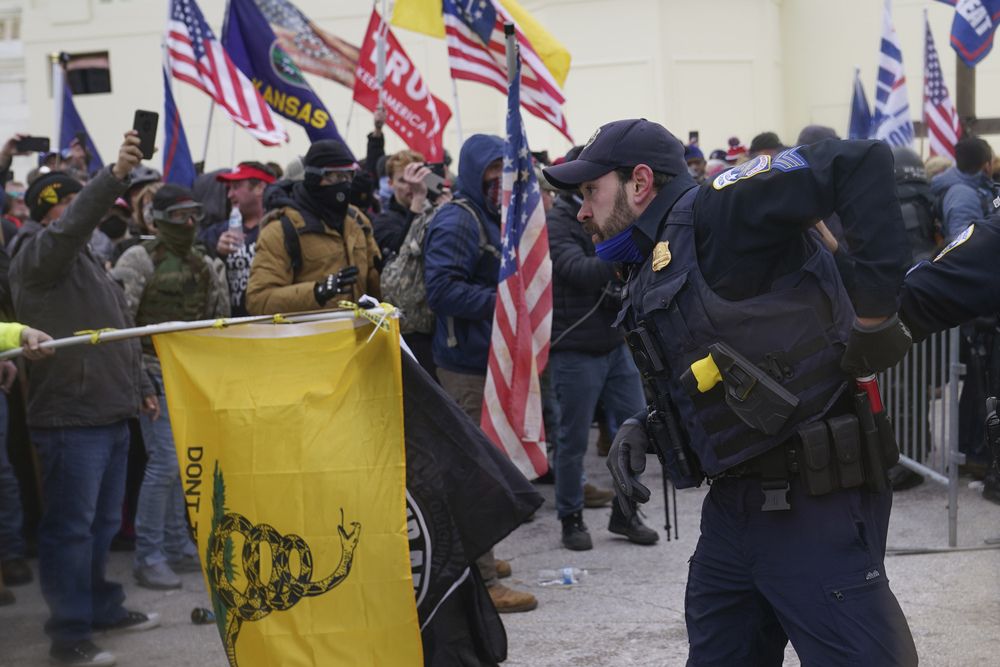
Around 2 p.m. on Jan. 6, 2021, White House aides were calling for President Trump to try to calm the mob at the Capitol. He did tweet, but it was not what they had hoped for.
Trump wrote: “Mike Pence didn’t have the courage to do what should have been done to protect our Country and our Constitution, giving States a chance to certify a corrected set of facts, not the fraudulent or inaccurate ones which they were asked to previously certify. USA demands the truth!”
“I remember us saying that that was the last thing that needed to be tweeted at that moment,” former White House deputy press secretary Sarah Matthews testified to the House Jan. 6 committee, video of which was shown at Thursday’s hearing. “The situation was already bad, and so it felt like he was pouring gasoline on the fire by tweeting that.”
The committee said the unrest escalated after the tweet, with crowds both inside and outside the Capitol surging. Minutes earlier, Secret Service rushed Pence off the Senate floor, avoiding the angry mob by just 40 feet, committee member Rep. Pete Aguilar, D-Calif., said Thursday.
"Make no mistake about the fact that the vice president's life was in danger," Aguilar said.
Aguilar said a confidential informant from the Proud Boys told the FBI the far-right group would have killed Pence if given a chance. The same informant said other Proud Boys members said afterward “that anyone they got their hands on they would have killed, including (House Speaker) Nancy Pelosi.”
Greg Jacob, former counsel to former vice-president Pence, was with Pence during the January 6th attack on the capitol. When asked whether he realized how close the rioters were to the Vice President, Jacob said ”I don't think I was aware that they were as close as that.”
“I could hear the din of the rioters in the building while we moved by,” Jacob testified Thursday. “I don't think I was aware that they were as close as that.”
Jacob testified that Pence never left the Capitol during the attack.
“When we got down to the secure location, secret service directed us to get into the cars, which I did, and then I noticed that the vice president had not,” he said. “So I got out of the car that I had gotten into, and I understood the vice president had refused to get into the car.”
“The head of his Secret Service detail, Tim said, ‘I assure you we’re not going to drive out of the building with your permission.’ And the vice president had said something to the effect of, ‘Tim, I know you, I trust you, but you’re not the one behind the wheel,” Jacob said. “And the vice president did not want to take any chance that the world would see the vice president of the United States fleeing the United States Capitol.
"He was determined that we would complete the work that we had set out to do that day,” he added.
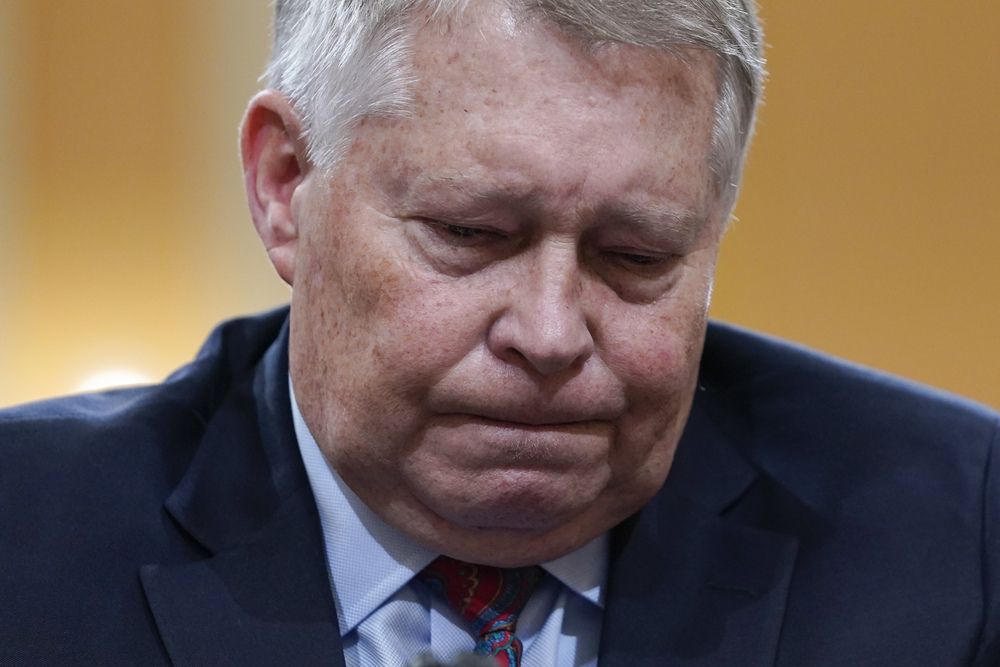
Retired federal judge Luttig, long respected in the Republican party for his conservative ideology, issued a sharp warning about the former leader of the party on Thursday, saying Trump and his supporters still pose a “clear and present danger to American democracy.”
“That's not because of what happened on Jan. 6,” Luttig told the House committee investigating the Jan. 6 insurrection on Capitol Hill, saying should Trump or the Republican candidate lose the next presidential election, the former president’s supporters “would attempt to overturn that 2024 election in the same way that they attempted to overturn the 2020 election, but succeed in 2024, where they failed in 2020.”
“I don't speak those words lightly,” Luttig added. “I would have never spoken those words ever in my life. Except that that's what the former president and his allies are telling us.”
In his prepared remarks for the committee, Luttig emphasized the role the Republican party must play moving forward.
“Only the party that instigated this war over our democracy can bring an end to that war,” he wrote.






